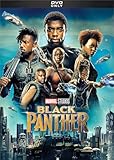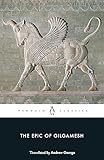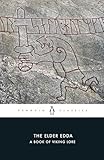When asked, Marlon James is hard-pressed to name his favorite story. It’s admittedly a nearly impossible request to make of anyone, and surely more so of a novelist, whose trade relies so deeply on both intake and telling, however tangled, of tales. Unable to name just one, James improvised.
“My favorite stories usually tend to be stories about voyages, whether it’s The Odyssey or it’s ‘Sinbad’ or it’s Huckleberry Finn,” he said. “If John Gardner is right and there are only two kinds of stories, ‘a stranger comes to town’ or ‘people go on a trip,’ then I’m definitely into the ‘people go on a trip’ kind of stories. I’ve always liked journeys, journeys where people meet sea monsters, or human monsters. There’s something about people leaving everything they know and going into what they don’t know where you actually learn a lot about people.”
Pondering the significance of the journey, be it a principled quest or spiritual pilgrimage or merely a pleasant jaunt, is a perennial human occupation. And this week marks the publication, by Riverhead Books, of Black Leopard, Red Wolf, the first book in James’s Dark Star trilogy—a decidedly non-European medieval fantasy appropriately billed as an “African Game of Thrones” and, more recently, racking up comparisons to last year’s Marvel superhero blockbuster Black Panther—which fits into a long tradition of stories built around a great voyage, even as it is unafraid to challenge the conventions of that tradition.
Black Leopard, Red Wolf is, in essence, the tale of a ragtag group of mercenaries seeking a missing boy who might be the heir to the throne of an empire spanning a large stretch of a fantastic medieval Africa. It is narrated by a man known only as Tracker, who is said to “have a nose”; his extraordinary sense of smell lets him track nearly anyone whose scent he has ever sniffed. Tracker and his on-and-off allies—among whom are a leopard who can shape-shift into a man’s body and back, a small giant, a Moon Witch, and an intelligent water buffalo—follow the boy from city to city, through stretches of dangerous, often mystical wilderness. Their hope is to bring him back alive, or to at least bring back news of his demise.
Many pieces of the novel’s plot will feel as familiar to readers of the Icelandic sagas or the Epic of Gilgamesh or Arthurian legend as it will to fans of speculative fiction properties from the likes of George R.R. Martin, Ursula K. Le Guin, J.R.R. Tolkien, and George Lucas, as they should. This is a hero’s journey, after all, even if its protagonist might not always seem heroic, and if the mythologist Joseph Campbell had been alive to read it, he’d be hard-pressed to disagree. Yet some might feel quite different, rooted as they are in settings and cultures that many, if not most, American readers, who remain unfortunately accustomed to fantasies set primarily in worlds of whiteness, have rarely, if ever, encountered.
Adding to this sense of newness is an intricacy James’s novels have become famous for sporting. For starters, Black Leopard, Red Wolf is only one of three books which will each tell the same overarching story from three separate perspectives, a technique evoking celebrated Japanese writer Ryūnosuke Akutagawa’s seminal short story “In a Grove” and, more famously internationally, its film adaptation by Akira Kurosawa, Rashōmon. As such, it is an investigation into truth, and the more each “truth” the novel and its characters bear is held to the light, the slipperier or knottier (or both) it becomes. As James writes, truth is “a shifting, slithering thing.”
This proves to be the case from the get-go. “The child is dead,” reads the book’s first line. “There is nothing left to know.” What follows is…everything left to know. It proves true too in James’s pyrotechnic language, often so elliptical as to feel intoxicatingly dizzying.
It proves true even in the novel’s creation, it seems. The text in advance reading copies was markedly different from what was in final copies of the book, as James made significant changes to the story following the printing of the galley. (Some of those changes, he said, involved adding some 15,000 words to imbue its women characters, and their stories, with more depth.)
When James first began work on the book, the story started as a “stranger comes to town” narrative before changing its course. He starts writing characters first, “which can be very frustrating, because I don’t know what their story is.” The characters, he said, “just won’t leave my head alone.” Eventually, though, the story comes. “It’s always important to me, when I’m writing a book, that these characters have a pre-novel life,” he said. “When I figured out why these characters were here and what mystery they had to solve, I knew they would leave home and everything they knew. But I didn’t know when I started it.”
At first, James also did not know that Tracker would become its main character. And, in the next book, he won’t be. That novel will hold someone else’s story—that of the Moon Witch, Sogolon.
“When I really started to think of this novel and how much I wanted it to divert from what I usually read in all the fantasy books I like, Tracker just came to the fore,” James said. “For want of a better way of phrasing it, I didn’t want to write a fantasy novel about important people. I didn’t want to write a fantasy novel starring nobles and kings, although they all end up in it. No, I wanted it to start in the street.”
That’s a common theme in James’s work, and exemplary, he said, of his writing process. Often, he will actively turn his focus toward a character he “hadn’t thought twice about” and, as he puts it, “look at everything I have and do the opposite or the reverse or pick the least important character.” As an analogy, he mentions photos of basketball players doing a slam dunk: “I always wonder, who’s that guy way off in a corner who was frowning at it? Who’s the bit player in the great shot? I want to know their story. That’s always happened to me. When I’m starting something, it’s the people in the margins that I notice over in the corner of my eye.”
James lives alternately in Minneapolis, Minnesota, where he teaches at Macalester College, and an apartment in Williamsburg, Brooklyn, but also keeps an office in the attic of Camp Cedar Pines, author John Wray’s brownstone in Park Slope, Brooklyn, which Wray has turned into something of a writers colony. It’s fairly spare, with an elliptical in the corner next to a blocky gray couch and a desk in the center of the room facing a wide glass window. As with most writers’ offices, it’s filled with stories, which is to say it’s filled with books.
Next to James’s desk, a single-volume version of Amos Tutuola’s novels The Palm Wine Drinkard and My Life in the Bush of Ghosts lies on the floor, and a stack nearby houses Octavia Butler’s Parable of the Sower and Parable of the Talents and two academic books from 5 Continents Editions’ Visions of Africa series, Arthur P. Bourgeois’s Yaka and David A. Binkley and Patricia Darish’s Kuba. In another pile near the desk, the Icelandic Elder Edda, the Saga of the Volsungs, and Beowulf sit atop William Shakespeare’s Sonnets, Fran Ross’s novel Oreo, and two more scholarly texts, Brian M. Fagan and Roland Oliver’s Africa in the Iron Age and Richard W. Hull’s African Cities and Towns Before European Conquest, both published by white scholars in the 1970s.
The solitary nature of a writer’s office is strange to James, despite having a room dedicated to writing in each of his homes and this office at Cedar Pines—which, sitting as it does down the hall and above the quarters of a number of other writers, does allow for a little bit more company. Growing up in Jamaica, James said, he was surrounded by the noise of his family and community, and it was in that environment that he first learned to work. (It does not hurt that James is as insatiable a music listener as he is a reader; he mentions Alice Coltrane and Joe Henderson, Herbie Hancock, Miles Davis‘s acid jazz albums, and the kora music of Toumani Diabaté, among many others, as being influential while he wrote this book.)
The novel itself replicates that noise, filled as it is with a motley of characters carrying their own passions, missions, fights to fight, sex to have, and tales to tell. The cities in Black Leopard, Red Wolf bustle, but so do the riverlands and the bush and the jungles—with humans, but also with giants, shapeshifters, demons, vampires with the power of lightning, bush fairies, merpeople, river spirits, gremlins, trolls, and flesh-eating monsters.
While James’s portrayal of mythological beings is distinctly African, the majority of these creatures appear in folklores all across the world. In a way, this allows the novel, which is such a paean to African history and culture and folklore, to double as an exhortation to fantasy readers: be drawn in by what is similar, and stay for what is unique. Or: Don’t stop at Tolkien and the Odyssey. Read Marlon James and the tale of Mansa Musa, The Lion of Mali, too.
The difficulty, as James makes clear, is that many stories of African peoples have only been available in the American and European markets in texts aimed at academia. Their authors, translators, and editors, almost invariably, are white academics. One major result of this is a lack of public awareness that leads to a perception of an inferiority of those stories, that James says just is not the case.
“Looking at the most recent translation projects of African epics, there’s been some really good work that’s been done,” James said. “The issue with a lot of those translations is that they weren’t translated by poets. They were translated for the academy. Which will lead people to think that these stories, these epics, are inferior to, say, the Icelandic sagas. No they’re not. I’ll bet anything the Odyssey wasn’t shit until a poet translated it.”
Until, that is, a poet retold its story. But with Black Leopard, Red Wolf, there’s no need to wait for the right translator. James is the teller, and Tracker, and Sogolon, and so many others. He, and they, have got a journey right here.
This profile was produced in partnership with Publishers Weekly and originally appeared on publishersweekly.com.
The post The Power of Myth: Marlon James Wants to Take You on an Epic Journey appeared first on The Millions.
from The Millions http://bit.ly/2tkyqCL














Comments
Post a Comment